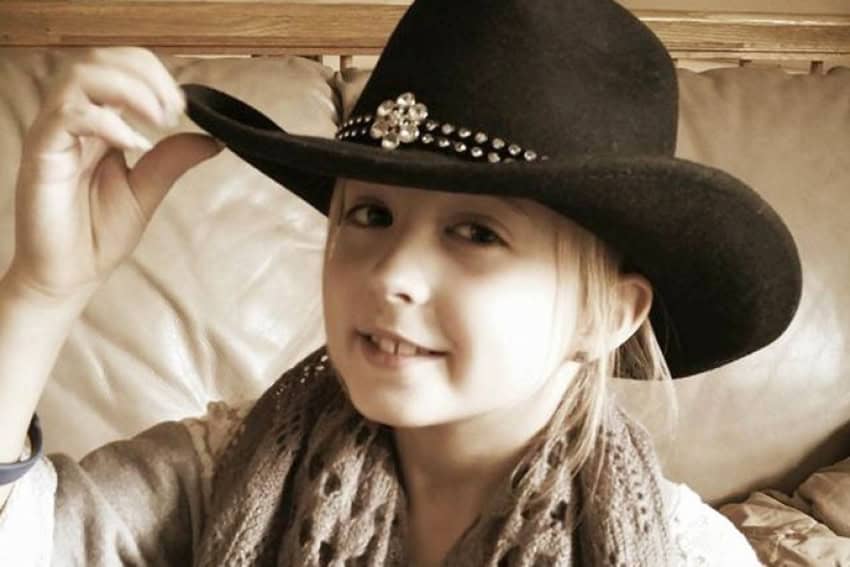SALT LAKE, Utah (Web Desk) – An eight-year-old girl from United States has been diagnosed with a rare type of breast cancer. She could likely be one of the youngest ever to receive such a diagnosis, The Guardian reports.
Chrissy Turner, who lives with her family in Centerville, Utah, near Salt Lake City, found a lump in her chest last month and, after an urgent visit to the doctor, was found to have a “one in a million” form of cancer called secretory carcinoma.
Doctors say her secretory carcinoma diagnosis accounts for only 0.15% of breast cancers and is ‘very treatable’.
It’s shocking not only because of her tender age, but also because both her parents are cancer survivors. The mother suffered from cervical cancer while her father is currently battling a Non-Hodgkin’s Lymphoma relapse.
The little girl is scheduled to have a mastectomy in early December to remove her breast tissue.
Chrissy said she was frightened when she heard the news.
“I was scared to figure out what it was,” she told ABC TV in an interview. “But I knew I could fight it off and I hope that I can fight it off.”
Her mother, Annette Turner, fought back tears as she said the family was devastated.
“It was such a shock,” she said. “No child should have to go through cancer.”
Mrs Turner told ABC4 she “broke down” when hearing that her daughter had cancer.
“It’s a very rare form of breast cancer,” she said. “It’s called secretory carcinoma. Only one in one million are diagnosed and she is the youngest that they’ve run across having this particular type of breast cancer.”
Friends of the family have started a GoFundMe campaign to raise money for medical bills.
Breast cancers in such young children are not unknown, but they are very rare. One report in the scientific literature in 2000 concerned a girl of just six years old. In the UK, fewer than five girls under the age of 10 were diagnosed with breast cancer per year from 2010 to 2012, according to Cancer Research UK.
Most breast lumps in children are benign. The few that are confirmed as breast cancer are less likely to spread than in adults, although there is a risk that they will not be found until quite late on. The treatment is usually mastectomy. Radiation therapy poses more risks for a child, who is still developing, than for an adult.

















